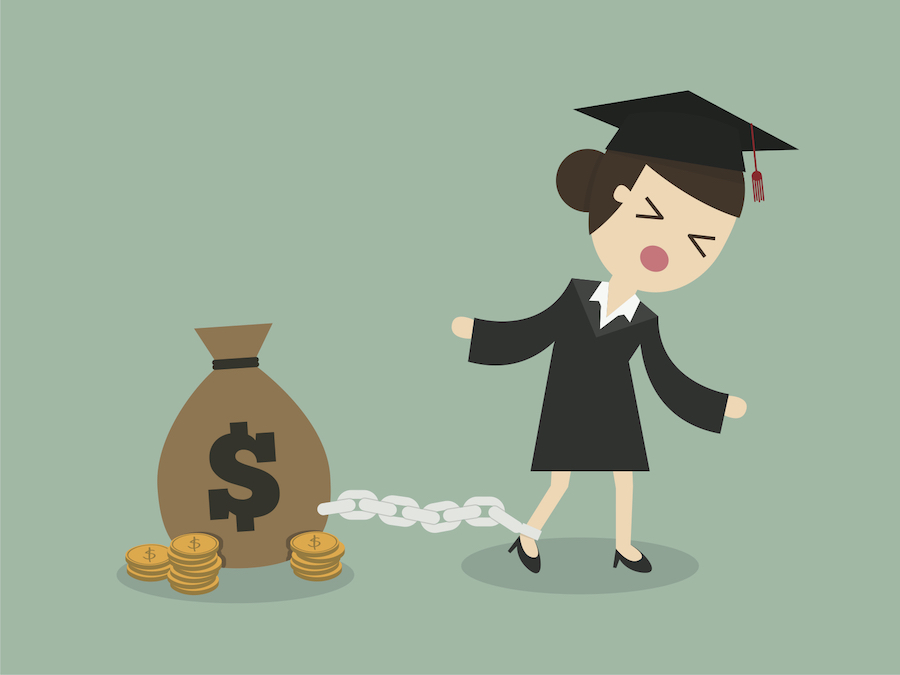The student loan process is one that causes frustration and confusion for many. It is easy to become overwhelmed by the many options and explanations that exist. The seven must know points of reference will help in demystifying the process. There are six types of federal loans.
1. Federal Loan Alternatives
- Direct subsidized loans: Need-based loans for undergraduate students that demonstrate financial need. There are no interest payments.
- Direct Unsubsidized: Loans for undergraduates with no requirement of financial need. Student responsible for interest
- Direct plus loan: Loans for graduate and doctorate students. Credit-based
- Direct consolidation loan: combines all student loans for repayment
- Federal Perkins loans: Undergraduate loans for students with exceptional financial need
- Parent Plus loan: An Undergraduate loan with low rates. Requires parent as a cosigner

2. Private Loan Alternatives
Private loans are loans that originate from banks and financial institutions. Private loans come in two types. School channel loans are low certified by educational institutions. These loans can only be used for educational expenses associated with the school.
Direct to Consumer loans have higher interest rates and are disbursed directly to students.
3. Grace Periods
A grace period is a time between the acceptance of a loan and the date the first payment is due. The grace period for student loans usually extends well past graduation which gives the student time to secure employment and earn some money before payments begin.
It is important to remember that a student can choose to begin making payments before the grace period end and it is possible to save money by doing so.
4. Time Is Money
When repaying student loans, it could be worth the added expense to pay a little more towards the debt each month. By doing so a student will not only shorten the time period that he or she will owe for a student loan but can also considerably decrease the overall cost of the loan by saving on interest. The lest interest you pay, the more money you save in the long run.
5. The Refinance Option
After graduation, it will be important for students to take care to preserve their credit score. Refinance options for student loans can offer great savings over the life of the loan for persons with excellent credit scores.
Refinancing is not the best option for everyone, depending on your financial situation, you may want to learn more about refinancing options.
6. Beware Of Scams
Student loan debtors should be aware of scammers looking to exploit debtors. Some of these scammers create quite elaborate presentations, even mimicking trusted websites like the Department Of Education.
They will entice student loan debtors with promises of loan forgiveness or debt settlement programs. Of course, there is a hefty upfront fee for enrollment in these programs.
7. Is It Worth It?
In the end, this is a question one can only answer for his or herself. However, a good reference point for figuring out if the cost of financing your education makes financial sense is to take the projected amount of money the student is expected to make from their career after graduation.
Then subtract the cost of the loan plus projected interest payment. This number will provide an idea of the network of the student’s education.